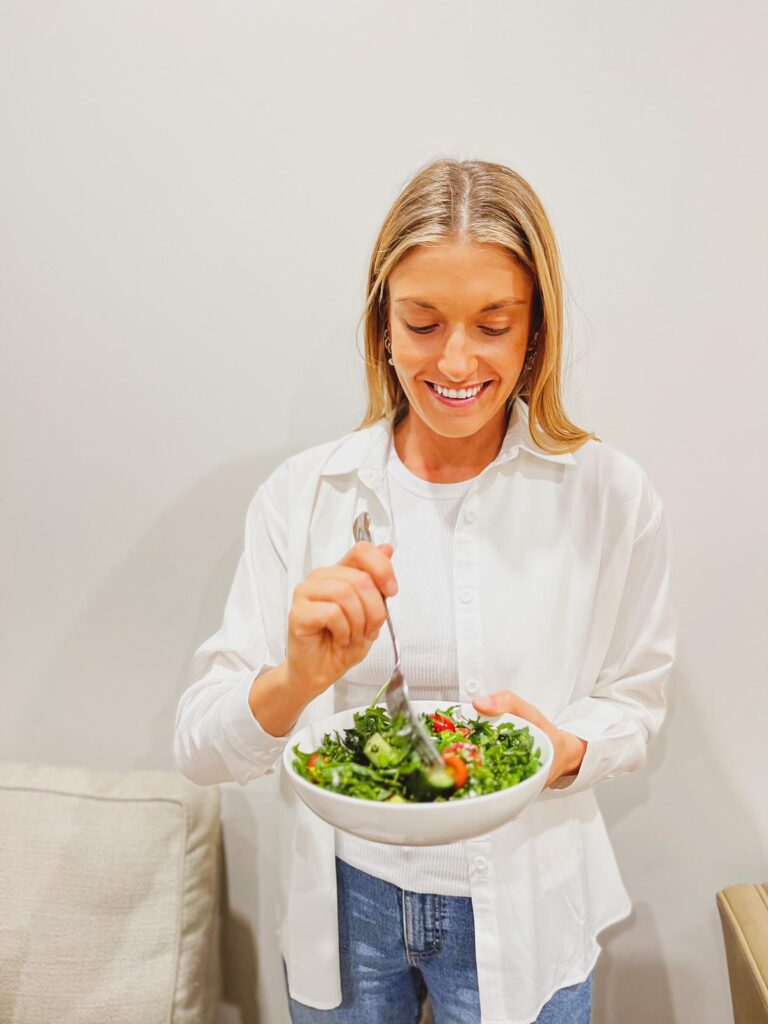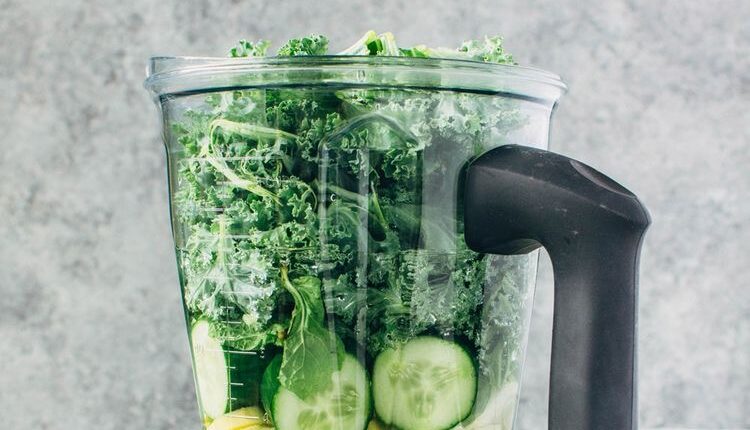From juice cleanses to water fasts, there is no doubt that there have been thousands of detoxes spruiked to us over the years with varying results.
While detoxing can be beneficial, as cleansing the body can help to improve an individual’s overall health by helping to remove waste from the body and boost energy levels, it can also negatively impact the gut if it is done incorrectly.
You’ll also like this:
From Oily to Sensitive: The Best Foundations for Every Skin Type
Six of Our Favourite Dupes for Drunk Elephant’s Viral Bronzing Drops
March Predictions by Zodiac Sign In 2023
It is important to remember that the gut is a very delicate ecosystem which can throw your body, mind, digestive system and energy levels off-kilter if the bacteria within the gut are thrown off balance. With that in mind, here are some tips Andrea Zapantis, founder of KYH Nutrition tells us on how you can safely detox without compromising the health of your gut.

By the way Andrea, how often should people detox and for how long?
1. Cut the extremes
Rather than going from eating whatever you normally would eat to a juice fast which can be a huge shock to the system, I would recommend taking a gradual approach to your detox. By this, I mean start with small changes to your lifestyle, such as cutting sugars, processed foods, caffeine and alcohol while increasing whole foods and plant matter such as veggies, fruit and wholegrains. A detox can be as simple as eating food in a natural state, such as fruit, veggies and nuts.
2. Avoid extreme diets
Cabbage soup diets, juice fasts, water and vinegar 10-day cleanses are all extreme and will all be shocking to the eco system in your gut. Try to avoid doing an extreme detox such as the above mentioned, as that is how you will throw off the balance of the healthy bacteria in your gut. Your body may also struggle going back to eating normally after such an extreme detox too which can lead to stomach pain and weight gain. You are much better off focusing on eating a balanced diet than doing a fast cleanse, as they can affect your gut, which can lead to constipation, diarrhoea, bloating and overall digestion discomfort.
Further to this, avoid laxatives. Many people feel that because they will be eating a restrictive diet, they want to go all out and get the best results possible as fast as possible, so they may follow an extreme diet and extreme exercise plan and use laxatives. Laxatives can lead to dehydration, an electrolyte imbalance and a host of other health problems. Instead, increase your fibre intake, eat whole foods and plant matter and stay hydrated.
3. Drink lots of water
Water helps to flush toxins out from your digestive system, so if you are detoxing, it makes sense to drink a lot of water. As a rule of thumb, aim for 1l of water per every 25k of your body weight per day.
4. Supplements
Not all supplements are created equal, but a good prebiotic or probiotic plays a crucial role in maintaining a healthy gut.
Prebiotics are indigestible fibres that feed on good bacteria in the gut, and they are found in foods such as asparagus, garlic and bananas. Probiotics are live microorganisms that can help to restore the balance of the gut, and they can be found in fermented foods such as kefir, kimchi, and yoghurt.
You can eat these foods to get a good dose of pre and probiotics, and there are also some great supplements available too.
5. Reduce your intake of inflammatory ingredients
Coffee, alcohol and refined sugar are stimulants, and they add inflammation to the body, which can spike your cortisol levels and affect your gut health. It is a good idea to cut all of the above out of your diet or at least reduce your intake when you are detoxing. All three of these substances can increase stress on your body and lead to digestive problems whereas if you reduce or cut them out, your body’s natural detoxification pathways will better be able to work.
Alcohol is an especially toxic substance that can damage the liver and interfere with the digestive tract, while refined sugar can lead to inflammation, weight gain, and chronic illnesses while also affecting your digestive health and your energy levels
Aside from diet, what else should be considered when detoxing?
When you detox, your regular healthy habits should still be maintained. While it can be easy to lay around because you may feel a bit tired as you are detoxing, keep up your exercise, as exercise helps to flush toxins from the body. Aim for at least 30-45 minutes per day, and choose an activity that you enjoy. You don’t need to do a high-intensity workout every day
Sleep is also imperative to not only detox but to good health as it helps your body and mind restore and regenerate. A lack of sleep can increase inflammation and disrupt your immune system and the balance of the bacteria in your gut. It can also increase your stress levels. Aim for at least 7-8 hours of sleep per night
Finally, stress can be very damaging. It can disrupt your sleep and increase inflammation due to cortisol being heightened for an extended period of time; it can affect the gut and your digestion too. Reducing your stress levels, however, can improve your body’s ability to detox naturally; it can increase your sleep quality and energy levels and improve your overall health and wellbeing.
You’ll also like this:
6 Great Reasons To Check Out Keto Diet
The Ultimate Destination for Personal Wellness in Bondi Beach
What Is The Difference Between Perfumes and Eau The Toilette?








Leave a Comment